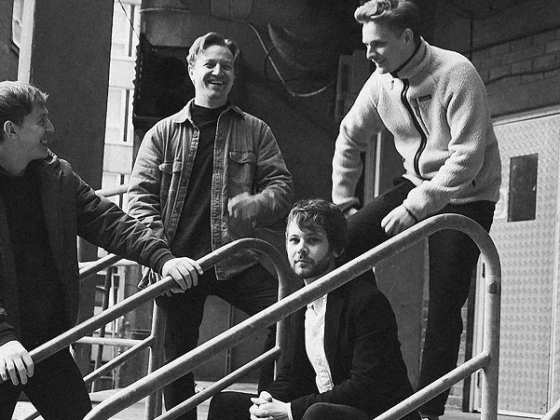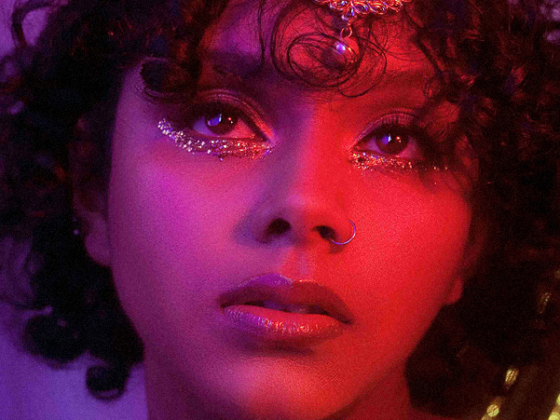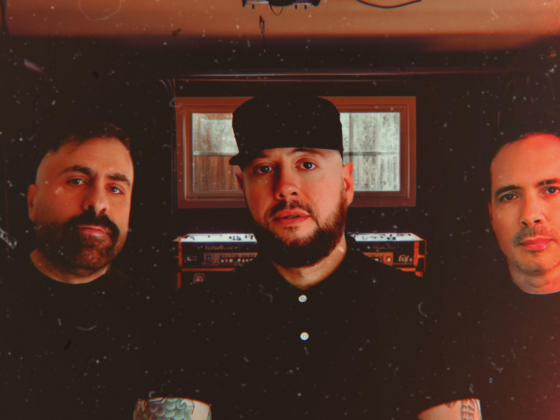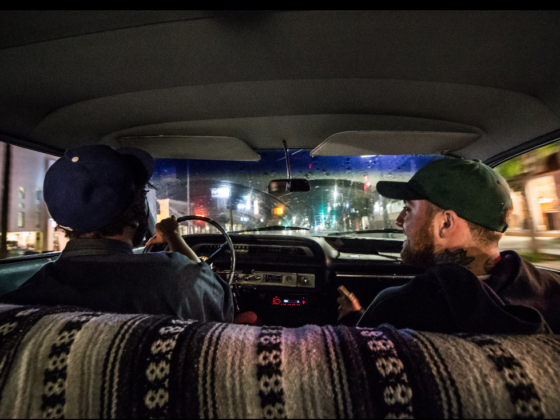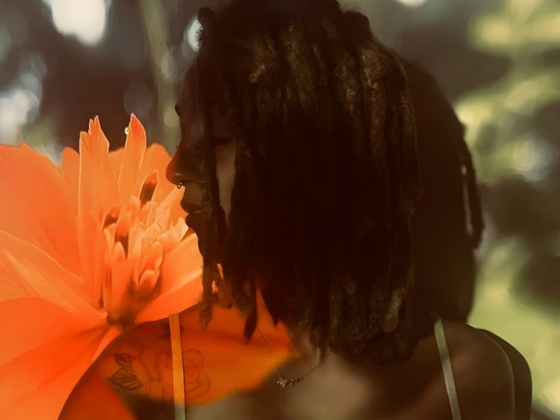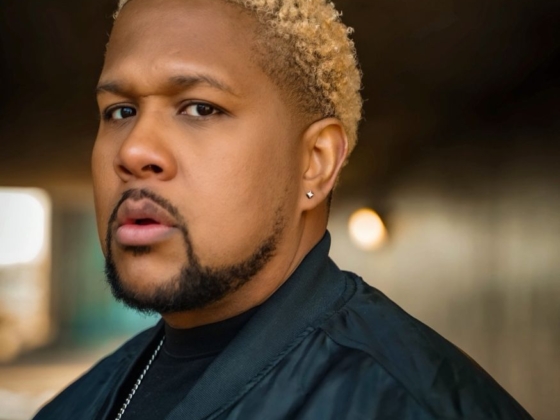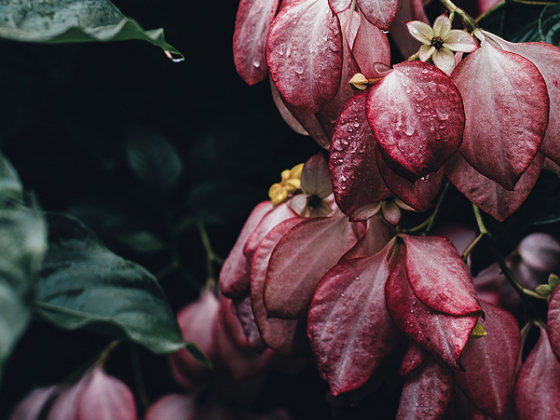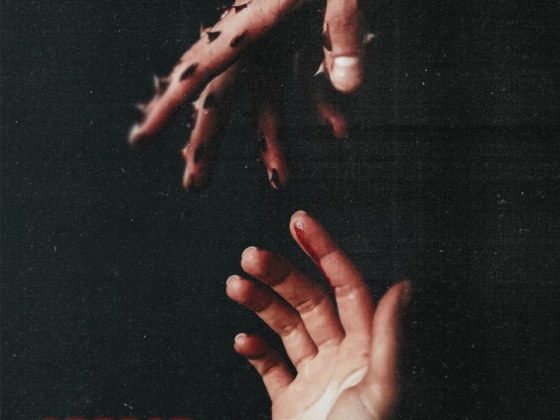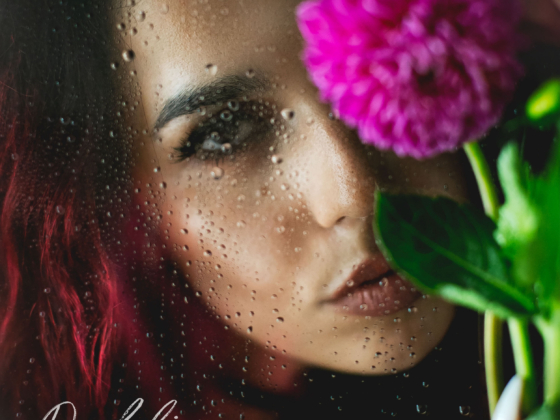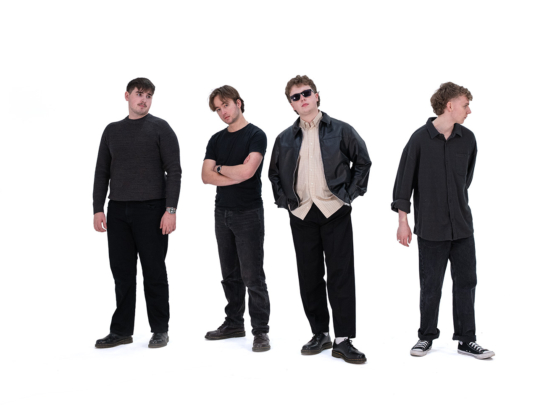Carrie Baxter and I are on a phone call complaining about Tik Tok. "I downloaded it and had a little browse and it was like sensory overload. I needed to get off it," she laughs in her hybrid Irish-English accent. "And I hadn't even ventured into the dance section yet!" Personally, if I ever start using it, someone should put me out of my misery. Somewhat ironically, I first heard about Carrie through organising an Instagram live concert for an Irish publication.
"I'm from that generation who only half got the internet. I wasn't on Instagram at the age of ten," she continues. "So I feel like while a lot of people are taking Instagram gigs in their stride, for me the whole talking-to-a-camera business is still not something I'm great at, and I like the vibe you get from a live audience. You don't get that on the internet at all. And then you have to deal with the wifi," she laments. "I suppose we've got to try to keep up with it, don't we?"
Baxter's debut EP, Placebo – which was released two weeks ago – gives the impression that she's is a bit of an old soul. Speaking with her is easy confirmation. The EP is a remarkable debut – hip-hop tinged jazz production is beautifully layered underneath her astonishing voice, which is at times bell-toned, and at others full of a raspy soul. 'Intro' literally trumpets Baxter's arrival, as she scats over drums and a jubilant saxophone. It's very New York, despite Baxter having grown up predominately in Ireland and London – and it's also immediately apparent that Baxter gets much of her influence from hip-hop.
"I think there's such a freedom of speech in hip-hop," she recalls of listening to Kanye West's College Dropout for the first time. "I was like, 'oh my god, how is he even talking about this?' Hip-hop has a way of talking about very deep things, but in an easy-to-communicate, easy-to-listen-to way. You don't even realise you're listening to something extremely conscious and thought-out. I think that's what I was fascinated by when I first found it."
Because of this influence – in addition to the regular stress of releasing music – The Waterford-born, London-based singer-songwriter has spent the last few weeks considering postponing Placebo's release. "I just felt it to be inappropriate to be talking about anything other than what was going on, and still is going on," she says. "I felt like maybe it would have been a distraction for people, and I felt really strongly that it should still be a very inward time. And for me, uploading the EP was just a complete distraction from that.
"My music is very deeply rooted in black music, and most of my influences are black artists. I felt like I had to be quite careful and respectful. And I felt if I did release it, it would have to be in reverence and respect of the movement. Not just an 'ah well, life goes on.'" True to her words, the release of Placebo was accompanied by an Instagram post thanking the black artists and friends that helped inspire and create her EP.
"Ultimately quite a few friends came back to me and said 'postponing is very considerate of you, but it's inaction. And you're not doing anything by taking it down, so why not put it up and say something while you're at it?' I've learned quite a lot over the last seven days, and I think in terms of how people see you being vocal or activism in general, or how people perceive that, so it was a very big decision for me, and I won't ever know if it's going to be right or wrong."
Placebo is an introspective look into the struggle between different parts of the mind, "sort of like a dialogue between my ego, the subconscious mind and the rational mind," says Baxter. "It was like three inner people talking to each other. I think if you haven't made somewhat of a separation from your ego, it's quite difficult to understand that you're chasing anything externally. Once you sort of have an awareness of your inner world, that is when you become very aware of the things you're chasing and what you suppress. It's so subjective and a very individual thing. I became aware of it because I was becoming very conflicted with my gut instinct, and I felt like I was doing things in order to live up to someone else's perception of me.
"I just had this awful feeling that I wasn't going in the right direction. Sensationalizing things I knew were bad for me was a big thing. I kept chasing them all the damn time, and I was repeating patterns mostly. As soon as I started to write and play people stuff they were like 'you should take this seriously.' I kept brushing it off, moving further and further away from music. That's a bit of a tangent to explain," she concludes, laughing.
But her tangent has me curious. Why on earth would someone so talented move away from music? "I was trying to do anything but music," she admits. "I think it's mostly to do with patterns that I ingrained in myself growing up. Just having to be brilliant and a perfectionist at everything. I still find it very hard to just focus on music, because I have a habit of needing to be brilliant for other people. So if someone needs me to do something, my all-or-nothing mindset will kick in. I find it very difficult to fulfill the things that I need me to be brilliant at, if that makes sense."
It's a sentiment that I'm sure resonates with a lot of people.
"People always laugh at me when I say that! They're like 'I've seen you on video and in interviews and you just don't stop talking!'" Baxter's strange hybrid Irish-English accent trills in laughter. "You are naked as hell when you put music out, though. It took me a long time to get to a point where I was comfortable. And the truth is, I never set out to be a singer. I set out to be a writer."
Baxter's no-bullshit approach to life bleeds into her songs, which are unflinchingly honest. 'Forbidden' and 'What Ya Tellin Me For' are modern R&B tracks without fancy bells and whistles, and Baxter is refreshingly unpretentious about her process – when asked her about writing methods, she says ruefully: "This really annoyed me when I was a young songwriter, hearing famous singers and established writers say, 'I just woke up in the middle of the night and heard the melody'. Or, 'well I just kind of plucked it out of thin air!' I'd always be like, 'give me some tangible tools!'" But, she admits, "sometimes that is just how it happens. The concept of Placebo was so set in stone that I knew what I wanted to write about. I think it was much easier for me to pluck melodies out of thin air on that basis."


